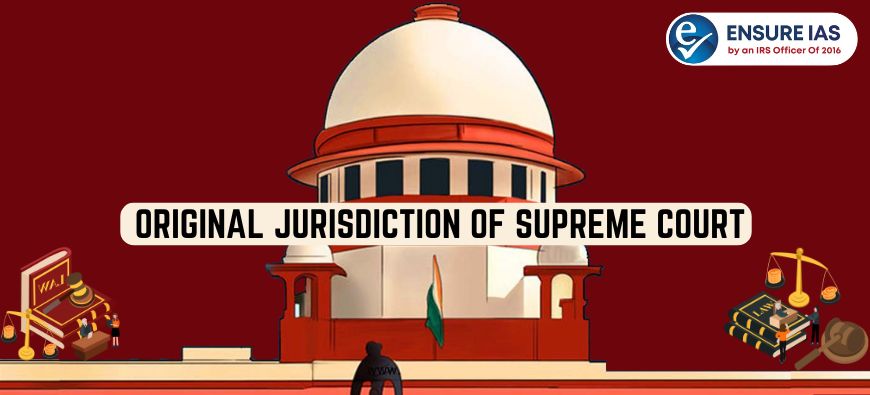- Courses
- GS Full Course 1 Year
- GS Full Course 2 Year
- GS Full Course 3 Year
- GS Full Course Till Selection
- Answer Alpha: Mains 2025 Mentorship
- MEP (Mains Enrichment Programme) Data, Facts
- Essay Target – 150+ Marks
- Online Program
- GS Recorded Course
- Polity
- Geography
- Economy
- Ancient, Medieval and Art & Culture AMAC
- Modern India, Post Independence & World History
- Environment
- Governance
- Science & Technology
- International Relations and Internal Security
- Disaster Management
- Ethics
- NCERT Current Affairs
- Indian Society and Social Issue
- NCERT- Science and Technology
- NCERT - Geography
- NCERT - Ancient History
- NCERT- World History
- NCERT Modern History
- CSAT
- 5 LAYERED ARJUNA Mentorship
- Public Administration Optional
- ABOUT US
- OUR TOPPERS
- TEST SERIES
- FREE STUDY MATERIAL
- VIDEOS
- CONTACT US
Original Jurisdiction of Supreme Court
Original Jurisdiction of Supreme Court
18-05-2024

Increasing number of states have been filing cases against the Central Government in the Supreme court under the provisions of original jurisdiction of Supreme Court as provided for in Indian Constitution.
About Original Jurisdiction of Supreme Court
- Article 131 of Indian Constitution provides for original jurisdiction of Supreme Court in following cases of dispute:
- Between the Centre and one or more states.
- Between the Centre and any state or states on one side and one or more other states on the other side
- Between two or more states.
- In the above federal disputes, Supreme Court has exclusive original jurisdiction.
- Exclusive means, no other court can decide such disputes and original means, the power to hear such disputes in the first instance, not by way of appeal.
Conditions For Filing Cases Under Original Jurisdiction of Supreme Court:
- First, the dispute must involve a question (whether of law or fact) on which the existence or extent of a legal right depends. Thus, the questions of political nature are excluded from it.
- Second, any suit brought before the Supreme Court by a private citizen against the Centre or a state cannot be entertained under this.
- Further, this jurisdiction of the Supreme Court does not extend to the following:
- A dispute arising out of any pre-Constitution treaty, agreement, covenant, engagement, Sanad or other similar instrument.
- A dispute arising out of any treaty, agreement, etc., which specifically provides that the said jurisdiction does not extend to such a dispute.
- Inter-state water disputes.
- Matters referred to the Finance Commission.
- Adjustment of certain expenses and pensions between the Centre and the states.
- Ordinary dispute of Commercial nature between the Centre and the states.
- Recovery of damages by a state against the Centre.
Note: In 1961, the first suit, under the original jurisdiction of the Supreme Court, was brought by West Bengal against the Centre. The State Government challenged the Constitutional validity of the Coal Bearing Areas (Acquisition and Development) Act, 1957, passed by the Parliament. However, the Supreme Court dismissed the suit by upholding the validity of the Act.



